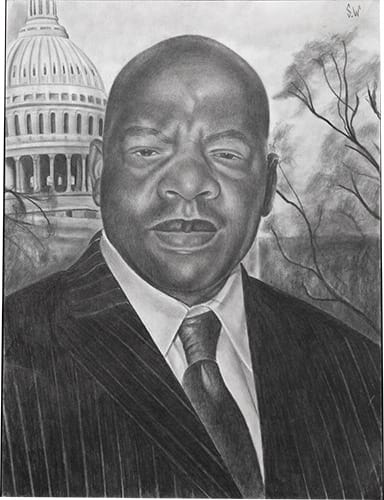What does justice in America materialize as? Policymakers, law enforcement officers and academic researchers across the nation have been grappling with the aforementioned query, specifically as it relates to local jails and state prisons where most offenders are detained. Regardless of an individual’s political affiliation – conservative or liberal, Democrat or Republican – we all endeavor to minimize futile incarceration while sustaining the wellbeing of society’s constituents and extricating tax dollars that can be put towards other public services. Alas, the convoluted discourse has been long on zeal and painfully short on facts. The prosecution of cases forces one to focus on a snapshot of the criminal justice system – the victim, perpetrator, and facts at hand. It becomes excessively easy to lose sight of how a singular case fits into the larger picture and how our actions measure with what alike prosecutors, judges, and juries are doing in other jurisdictions.

Accessibility to data bolsters objective procedures that are utilized to substantiate our theories, disprove our assumptions or assess our predispositions. Ostensibly, we make decisions rooted deeply on instinct and observation rather than on information. The collection and standardization of publicly obtainable comprehensive data across the United States is no longer an advantageous methodology. It is a prerequisite for the amelioration and augmentation of our system in terms of allocation of resources. In 2018, the Florida legislature passed a Criminal Justice Data Transparency (CJDT) bill targeted at standardizing and centralizing case-level criminal justice data from agencies in all 67 counties, mandating justice agencies to submit data to the Florida Department of Law Enforcement (FDLE). Measures for Justice, an organization committed to making accurate criminal justice data available to catalyze reform, was elected to liaison the pilot project because of its unparalleled expertise and employment of the data fellows. The implementation of the piece of legislation explicated upon uniformity through automation and normalization as an indispensable tool to criminal justice data infrastructure and transparency. With reliable and publicly made data, efforts to make criminal justice policy decisions that are meritorious and free of bias and prejudice will be feasible. We could engender an exemplary criminal justice system that each and every American can entrust. This is the one inexplicable plight where the truth really can set people free. Doing the right thing typically costs rather than pays, but it sure does bring health to the heart. Of all matters in life that harness a durable implication, it is the morally sound things that radiate amongst the others. Integrity and honor are indispensable elements to the system in place in our country that are severely lacking from governmental institutions. Addressing any injustice is never simple. Apologies are never enough. Actions are always insufficient. The best we can hope for is continual practice of doing justice and speaking truth, even and most especially, in moments when others are silent. To make real progress and enact systemic change, we need holistic police reform at the federal, state, and local level. Anything short of that will not relieve the pain and suffering that inundates the United States.

Too often over the past few decades, we have witnessed a gamut of radical injustices. It is quintessential that society expounds upon a lacerating indictment of a deeply flawed American justice system that systematically targets young black men making such convictions inevitable. Events across America in cities such as Ferguson, Cleveland, Minneapolis, and beyond have shed light on the concept of policing in conjunction with the criminal justice system as a whole. At large, the core of these travesties is race: an abominable matter that pervades the lives of Americans of all tinctures. Race is rife with a plethora of concerns which makes betterment challenging. The transparency in policy and administration of justice are two components that can be refined in our lifetime. The people have a right to know the full extent of the rules governing the police and individuals in power positions in the court and prison systems. Transparency holds these actors accountable which furthers trust in an ethical legal backbone. If we, the people, are not able to believe in our police and justice systems, then we seemingly do not have a stake in these systems and thus no incentive to consent to the rules that regulate them. A key aspect of ameliorating the criminal justice system is prison reform. Prison reform is centered around the protection of public safety and restoration for those individuals afflicted by crime through the creation of a constructive culture within our prison system. It is imperative that we alter the circumstances of incarceration in ways that bequeath the system to model and incentivize the lifestyles and philosophies conducive to personal accountability. If the youth in our society prioritizes providing people with opportunities to develop productive skills and furnishing them with proper skills and positive relations, then we can help them achieve their maximum potential and transform their lives upon returning to our communities. We must come together to shape the future of our nation. Our courts should reflect our country. It is quintessential that we appoint people who are devoted to seeing justice be served, and treating each case on its merits through the election of federal judges who have diverse backgrounds and experiences. We live in a world that demands we share responsibility. Of course, it is much easier to pass along the obligation to the next group of individuals; however, that only further exacerbates the problems we currently face. If you want to alter the course of our world, you must empower those around you. Never doubt that your efforts alone will reap ramifications on those around you and forment advancement.

The essentiality of an open mind in contemporary society goes in tandem with transparency. You cannot have one without the other in terms of legitimate progression for the long term. Without change, there is no trace of creativity, innovation, or enticement for growth. Those ambitious individuals who galvanize transformation have a greater chance to control the change that is inexplicably inescapable. On a greater scale, ignorance can successfully wreak havoc on the concord of a country. Hence, policy makers and authoritarian figures must be cognizant of maintaining an open mind as well as society’s constituents in order to best erect progression on a profound moral level. Whether you like it or not, the world is constantly changing. You can either change with it or you can attempt to cling to the past and probably end up being left behind. I advocate for the former. To me, it is obvious that living in a dynamic world requires a dynamic mindset- in essence, something that is true today may not be true tomorrow.
Intellectual curiosity stimulates a deep, persistent ‘need to know’ essence that prompts one to ask questions. The artwork beautifully cultivated by incarcerated people is designed to do just that. In fact, it was from inception that these ingenious conceptions left me yearning to know every thought that crept into the artists’ prolific minds. These individuals strive for his or her audience to question their speculations about the authenticity of our legal system and become acquainted with the humanity and fallibility of the criminal justice system in our nation. It is an artist’s job to be reactive and provocative, and this fiery energy is found in individuals when they are implored to better our society as a result of injustices they have faced. It is the audience’s role to allow the work to spur them into action as well as contemplation. These artists’ creations unearthed my newly adopted philosophy concerning my impact on our society. The inmates tasked with meticulously crafting the artwork keep the overarching hallmark of transparency in mind with the hopes of demonstrating to those on the outside the realities of the prison system. So what does it mean to make art? How do you get material when literally the state is punishing you? How can you take an experience and turn it into a space of incredibly immersive creativity? Creating art, whatever type of art, helps an individual express themselves. Art helps heal the passage of time, which can be exceptionally painful while incarcerated. Painting, drawing, sculpting, poetry and music composition are all forms of artistic expressions that free one’s soul and vitiate the strident realities encapsulating living in prison.
If you’re looking for more information or want to help with our mission, please visit https://impartial.one.


